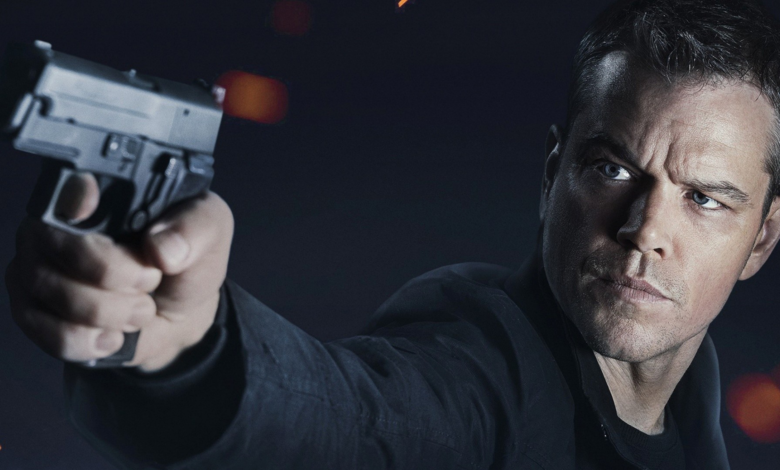Jason Bourne: The Relentless Spy Who Redefined Action Thrillers

Few fictional characters in modern cinema have left as strong an impression as Jason Bourne. Introduced to audiences as a man with no memory but an extraordinary set of survival skills, Bourne became a symbol of raw grit, razor-sharp instincts, and the constant pursuit of truth. His journey, spread across books and films, has redefined the spy-action genre by blending heart-pounding sequences with a deeply human story of identity and redemption. Whether you discovered him in Robert Ludlum’s novels or through Matt Damon’s powerhouse performance on the big screen, Jason Bourne remains an unforgettable name in pop culture.
The Origins of Jason Bourne: From Page to Screen
The story of Jason Bourne began not in Hollywood, but in the pages of Robert Ludlum’s 1980 novel The Bourne Identity. Ludlum’s approach to espionage was different from the James Bond style of flashy gadgets and suave confidence — instead, Bourne was flawed, confused, and intensely driven by a personal mission. This grounded portrayal resonated with readers who were used to larger-than-life spies. Bourne wasn’t a man who chose to be a hero; he was a man who was forced into the role by circumstance and survival.
Hollywood’s adaptation in 2002 brought this complex character to a much wider audience. Matt Damon’s interpretation was grittier and more physical, removing much of the Cold War backdrop in favor of a more modern, post-9/11 espionage landscape. The decision to focus on realistic action — quick, brutal fight sequences, grounded car chases, and minimal CGI — helped The Bourne Identity stand out in a crowded action-movie market. It was less about the glamour of spying and more about the raw, exhausting fight to stay alive.
This transition from book to screen also allowed for a tighter, faster-paced narrative. While Ludlum’s novels were heavy with political intrigue and detailed backstory, the films trimmed the fat and amplified the intensity. Still, the heart of the character remained intact: a man in search of his identity, constantly hunted, and never truly at rest.
A Spy Unlike Any Other

One of the main reasons Jason Bourne captured audiences’ imaginations is his stark contrast to other fictional spies. Unlike James Bond, Ethan Hunt, or even Jack Ryan, Bourne is not working with an official agency for most of his story. In fact, much of his arc is about running away from the very people who trained him. This shift in perspective creates a tension-filled narrative — Bourne’s “missions” aren’t about saving the world from a supervillain; they’re about staying one step ahead of assassins while piecing together the truth about who he is.
Bourne’s skillset is also refreshingly practical. He doesn’t rely on flashy tech or improbable gadgets. Instead, he uses whatever is at hand — a rolled-up magazine as a weapon, a pen for self-defense, or everyday items for quick disguises. His fighting style, rooted in real-life martial arts like Krav Maga and Eskrima, looks fast, efficient, and believable. This grounded approach made every fight feel intense and personal, rather than choreographed for spectacle alone.
Another defining trait is Bourne’s constant moral conflict. While he’s capable of lethal force, he often avoids unnecessary killing, especially as he begins to uncover the darker truths of his past. This inner struggle gives him a depth that many action heroes lack. He’s not just running from enemies — he’s running from what he used to be, trying to reconcile the trained killer with the man who now values human life.
The Bourne Film Series: Raising the Bar for Action Cinema
The Bourne films didn’t just entertain audiences — they changed the way Hollywood approached action sequences. Beginning with The Bourne Identity in 2002, director Doug Liman introduced a more intimate, chaotic style of action filmmaking. Instead of sweeping, polished shots, the camera stayed close, making the viewer feel like they were right there in the middle of the fight or chase.
When Paul Greengrass took over for The Bourne Supremacy (2004) and The Bourne Ultimatum (2007), he amplified this style with his signature “shaky cam” technique. This approach, combined with rapid-fire editing, made the action feel raw and urgent. Critics and fans alike praised these films for making fight scenes that were not only thrilling but believable. You could almost feel every punch and hear every breathless footstep.
The series also stood out for its tight storytelling. Each installment felt like a direct continuation of the last, with no filler or over-the-top detours. By the time The Bourne Ultimatum wrapped up the trilogy, audiences had experienced one of the most consistent and satisfying action trilogies in modern film. Even later entries like The Bourne Legacy (2012), which introduced Jeremy Renner’s Aaron Cross, and Jason Bourne (2016), brought fans back to the gritty world that had been so carefully crafted.
Jason Bourne’s Psychology: The Man Behind the Skills
What truly makes Jason Bourne fascinating isn’t just his ability to fight or escape — it’s his mind. Bourne is a character defined by trauma, both physical and psychological. His amnesia serves as more than just a plot device; it’s a metaphor for the struggle to reclaim humanity after being stripped of it. Every memory he recovers is another piece of the puzzle, but also another reminder of the brutal things he has done.
This psychological depth makes him relatable in ways many action heroes aren’t. While most spies are confident and assured, Bourne is often anxious, cautious, and burdened by guilt. He’s constantly assessing his surroundings, not because it looks cool, but because his survival depends on it. His paranoia is justified — the forces chasing him are relentless, and the danger is never far away.
There’s also an element of loneliness in his character. Even when he connects with allies, such as Marie Kreutz in The Bourne Identity or Nicky Parsons in later films, those relationships are fragile and often endangered by his world. Bourne’s life is one of constant movement, with little room for lasting trust. This isolation adds to the tension, making audiences root for him not just to survive, but to find peace.
The Legacy of Jason Bourne
Over two decades after his cinematic debut, Jason Bourne’s impact is still felt across the action genre. Many films and TV shows have tried to replicate his formula — the grounded fight choreography, the conspiracy-driven plots, the flawed hero with a mysterious past. While some have succeeded, few have matched the tight blend of character development and adrenaline-fueled storytelling that Bourne perfected.
In addition, Bourne helped shift the perception of what an action star could be. Before Matt Damon, the role of a super-spy was often reserved for actors with a more “traditional” action-hero build or persona. Damon’s portrayal proved that a great spy story was less about muscles or charm and more about emotional intensity, intelligence, and believability.
The character’s longevity also speaks to the universal themes embedded in his story — identity, redemption, and the quest for truth. No matter how intense the action gets, the emotional core remains the same: a man trying to answer the most human of questions, “Who am I?”
Conclusion: Why We’ll Always Remember Jason Bourne
Jason Bourne is more than just a name on a movie poster or the hero of a bestselling book series. He’s a complex character who redefined what audiences expect from an action thriller. By combining heart-stopping sequences with a deeply personal narrative, Bourne’s story bridges the gap between blockbuster spectacle and intimate drama.
Whether you’re watching him outwit the CIA, survive impossible chases, or quietly reflect on the fragments of his past, there’s something about Jason Bourne that feels real — and that’s why he endures. He’s not invincible. He’s not untouchable. But he is relentless, and in the world of spies and secrets, that might be the most dangerous quality of all



